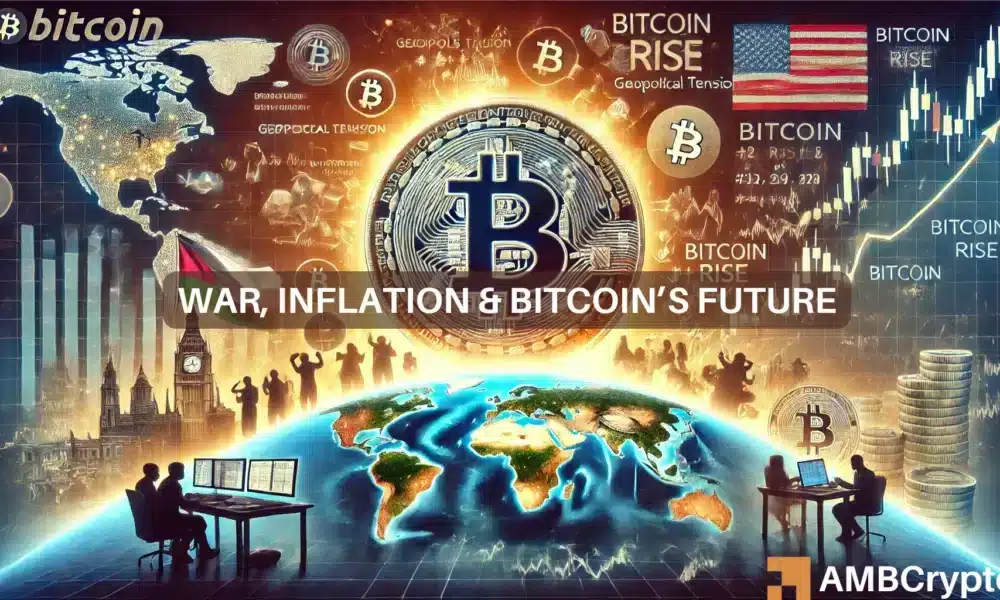At the moment of writing, Bitcoin [BTC] was in a bullish period, trading at $67,862.17, with a notable 11% increase over the last week.
However, with geopolitical tensions rising, there are growing concerns about inflation and increased government expenditure, potentially leading to a downturn in BTC’s performance.
Arthur Hayes’ Optimism
Despite the challenges, Arthur Hayes, the co-founder of BitMEX, remains positive about the future of Bitcoin, predicting a significant upward trend.
In a recent blog post, Hayes suggested that the U.S. government’s financial responses to conflicts in the Middle East could result in heightened money printing, sparking a bullish run for BTC.
He expressed,
“We know that war leads to inflation. We are aware that the U.S. government must borrow funds for military purposes in the Middle East.”
He further stated,
“We understand that the Federal Reserve and the U.S. banking system will infuse cash through money printing, causing Bitcoin to surge significantly in fiat value as conflicts escalate.”
Lingering Concerns
Despite the optimism, concerns persist for Bitcoin, particularly with the impact of geopolitical conflicts on the crypto sphere.
Bitcoin mining rigs are significant assets in the cryptocurrency ecosystem, vulnerable to disruptions caused by warfare.
Yet, Hayes noted that the current Israel-Iran tensions are essentially proxy conflicts involving major global powers on opposing sides.
He indicated that neither side desires direct conflict, potentially limiting the repercussions on the crypto industry.
He mentioned,
“Iran stands out as a hub for Bitcoin mining, reportedly contributing up to 7% of the global hash rate, as some reports indicate.”
Bitcoin’s Historical Analogies
By drawing parallels with historical incidents, Arthur Hayes recalled the Arab oil embargo in 1973 and the Iranian revolution in 1979 to highlight the resilience of hard assets like gold during energy crises and inflationary eras.
He suggested that BTC, often referred to as “digital gold,” might mirror these patterns in the current economic climate.
However, Hayes advised caution, urging traders to prepare for potential fluctuations.
He stressed that if ongoing conflicts result in global market instability, the crypto sector could witness a significant downturn.
In conclusion, he aptly remarked,
“The wisest course of action is to secure your loved ones and assets from harm and invest in assets that outperform fiat devaluation while preserving their purchasing power.”
Hence, although geopolitical tensions can have short-term impacts, their effects could be balanced by shifting liquidity dynamics.

